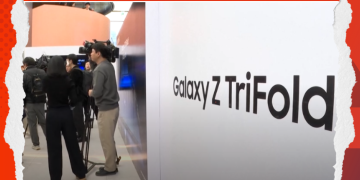OpenAI’s Bold Hardware Play: The $6.4 Billion Acquisition
In a market-shaking move that signals a dramatic shift in AI strategy, OpenAI announced today that it’s acquiring io, the AI hardware startup co-founded by former Apple design chief Jony Ive, in an all-stock deal valued at approximately $6.4 billion. The acquisition represents OpenAI’s largest to date and comes just weeks after its $3 billion purchase of AI-assisted coding tool Windsurf.
The deal brings legendary designer Jony Ive the creative force behind Apple’s most iconic products including the iPhone, iPad, and MacBook Air into OpenAI’s fold, where he’ll assume “deep creative and design responsibilities across OpenAI and io,” according to the company’s statement.
This acquisition transforms the competitive landscape of AI, firmly establishing OpenAI’s ambitions beyond software and into the physical device realm that companies like Apple and Google have traditionally dominated.
The Vision Behind io: Less Disruptive AI Computing
Founded approximately a year ago by Ive along with fellow Apple alumni Scott Cannon, Tang Tan, and Evans Hankey, io emerged from a series of dinner conversations between Ive and OpenAI CEO Sam Altman, facilitated by Airbnb CEO Brian Chesky.
The startup, which has been operating largely in stealth mode, was reportedly working on creating “a product that uses AI to create a computing experience that is less socially disruptive than the iPhone.” While specific product details remain undisclosed, industry speculation has centered around voice-enabled AI assistants that might not rely on traditional screens.
What we do know is that the io team will now merge with OpenAI to “work more intimately with the research, engineering and product teams in San Francisco,” according to a joint statement from Altman and Ive. Meanwhile, LoveFrom Ive’s design consultancy will remain independent.
OpenAI’s Hardware Ambitions Take Shape
This acquisition doesn’t exist in isolation but represents the culmination of OpenAI’s increasing investment in hardware capabilities:
- In November 2024, OpenAI hired Caitlin “CK” Kalinowski, former head of Meta’s Orion augmented reality glasses initiative, to lead its robotics and consumer hardware efforts
- The company invested in Physical Intelligence, a robot startup that raised $400 million at a $2.4 billion valuation with participation from Jeff Bezos and other notable investors
- Prior reporting suggested OpenAI was already mulling an acquisition of io earlier this year, with initial estimates valuing the deal at around $500 million
The accelerated timeline and dramatically increased valuation (from $500 million to $6.4 billion) suggests either rapid progress at io or escalating competitive pressure in the AI hardware space.
Jony Ive: From Apple to AI
For Ive, this represents his most significant technology venture since departing Apple in 2019 to start LoveFrom. After his exit, he briefly consulted with Apple before that relationship concluded in 2022. The New York Times reported that LoveFrom’s clients pay the firm up to $200 million annually, with its designers working on projects for Christie’s, Airbnb, and Ferrari.
Ive’s shift to AI hardware design is particularly noteworthy given his philosophy at Apple, where he championed minimalism and sought to make technology disappear into the background of users’ lives. This approach may be especially relevant for AI interfaces, where the challenge involves making increasingly complex capabilities accessible and intuitive.
What Could io’s Products Look Like?
While official details remain scarce, previous reporting suggests several possibilities:
- A “phone” without a traditional screen, focusing instead on voice interaction
- Smart home devices integrating ChatGPT-like capabilities
- AI assistants designed to feel more natural and less intrusive than current options
- Devices that prioritize privacy while maintaining utility
The project has apparently been in early design stages, with no finalized product concepts yet unveiled. What is clear is that Ive and his team, working from a newly acquired 32,000-square foot office in San Francisco (reportedly part of a $90 million real estate purchase), have been reimagining how humans might interact with AI.
Market Implications: The AI Hardware Race Accelerates
OpenAI’s acquisition comes amid intensifying competition in the AI space. The company, recently valued at $300 billion in a SoftBank-led funding round, faces challenges from Google, Anthropic, and Elon Musk’s xAI, all of which are investing heavily in AI development.
By acquiring io, OpenAI potentially gains several strategic advantages:
- Design expertise: Ive and his team bring unparalleled consumer hardware design experience
- Hardware integration: Tighter integration between OpenAI’s models and purpose-built hardware
- New revenue streams: Direct consumer products beyond API and subscription services
- Competitive positioning: A head start against Big Tech companies developing their own AI hardware
For consumers, this signals that AI’s future won’t be confined to apps on existing devices but may include entirely new product categories designed specifically for AI interaction.
The Road Ahead: Challenges and Opportunities
The success of this acquisition isn’t guaranteed. Previous AI hardware ventures like the Humane AI Pin and Rabbit R1 have faced challenges gaining consumer adoption. The io team will need to develop products that provide compelling value beyond what’s already available on smartphones and smart speakers.
Another open question is how this move will affect OpenAI’s relationship with Microsoft, its largest investor. Microsoft has its own hardware division and has been integrating OpenAI’s technology into Windows. This acquisition potentially positions OpenAI as both partner and competitor.
Nevertheless, the combination of OpenAI’s leading AI models with Ive’s design prowess creates the potential for breakthrough products that could define how we interact with AI for years to come.
What’s Next?
As OpenAI absorbs the io team, the industry will be watching closely for hints about upcoming products. Given the typical development cycles for consumer hardware, we might expect the first fruits of this collaboration to appear within the next 12-18 months.
One thing is certain: by bringing Jony Ive’s design sensibility to AI hardware, OpenAI has made a statement that the future of AI isn’t just about better algorithms it’s about reimagining the entire human-AI relationship, starting with the physical devices that mediate our interactions.














